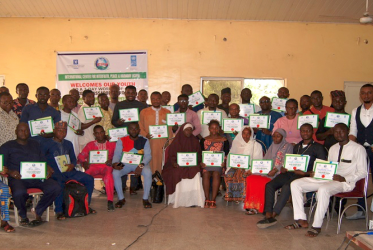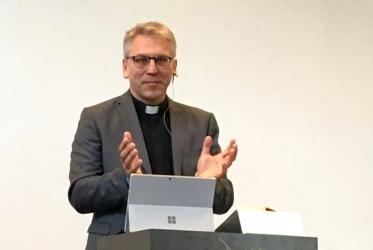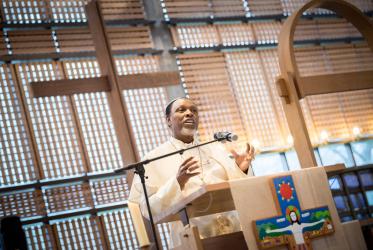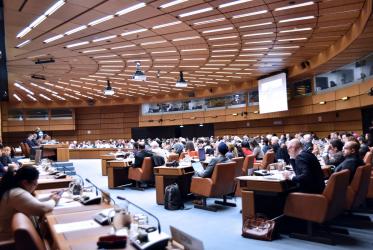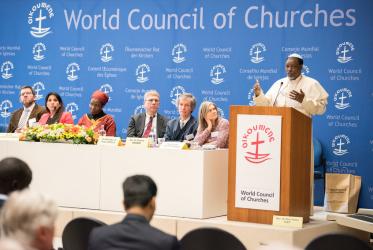Displaying 1 - 20 of 25
Paving the way for ecumenical studies, learning English in Bossey
24 September 2018
Walking together against hatred and violence
26 February 2018
Turning plans into action to prevent incitement to violence
14 February 2018
In Nigeria, WCC workshops focus on human rights
04 December 2017
Nigerian Christians and Muslims open historic peace centre
20 August 2016
Religion: Way of war or path to peace?
30 June 2016
WCC/UN conference calls for coordinated action on refugee crisis
20 January 2016


